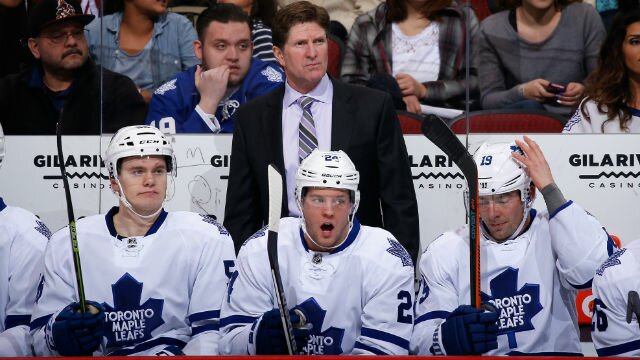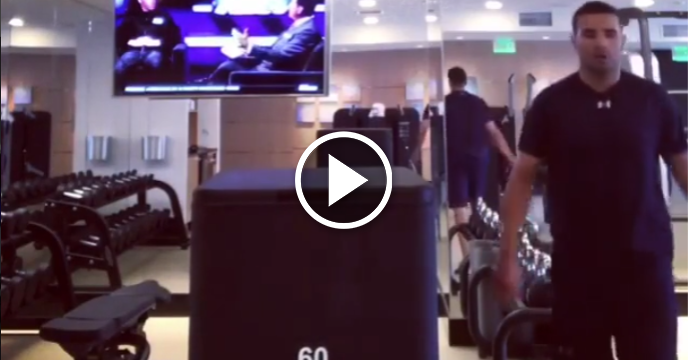Over the last few years in the NHL the topic of concussions have been brought up more often to the point that the NHL has had to create rules and protocols in how to handle a concussed player. Everyone seems to be on board with the new mentality on concussions — everyone except Toronto Maple Leafs head coach Mike Babcock.
Babcock was recently asked about his thoughts on the concussion protocol in reference to Dennis Wideman‘s hit on a referee during a game on January 27, which resulted in Wideman being suspended for 20 games.
“Well I think when a player says he’s okay to play and keeps playing, he’s okay to play,” Babcock said to group of reporters.
One of the major issues surrounding Wideman and the hit on the referee is how the Calgary Flames handled the situation. Before hitting the referee, Wideman was checked into the boards and hit his head. Wideman managed to get up and start skating to the bench, but he clearly looked woozy, which is a possible sign of a concussion.
After a player is hit and appears to be having trouble, the team’s medical staff are supposed to take the player to the dressing room and make sure they haven’t received a concussion. This can stop the concussion from being worse because a player could further injure themselves by going back onto the ice. This was not done with Wideman as he never missed a shift and finished the game. Luckily for Wideman, he didn’t suffer a concussion.
Babcock’s opinion of basically letting the player decide if they are well enough to play is both dangerous and foolish. If it’s up to the player then they will always say they’re okay to play. Most NHL players play through injuries even when they really shouldn’t, but it’s just part of the culture of hockey. The mentality of playing through an injury only gets worse during the playoffs when the stakes are higher and so is the pressure on players to keep playing.
Johan Franzen of the Detroit Red Wings might be a casualty of Babcock’s reckless disregard for his players. Franzen was an integral player for Babcock while he was Detroit’s coach, and during that time Franzen sustained multiple injuries, most notably concussions. Franzen only played two games this season before being put on long-term injury reserve because of experiencing the symptoms of a concussion.
Babcock needs to understand that when it comes to concussions, it’s not up to the player to decide or even the coach. It’s up to the trained medical professionals that Toronto has on staff that decides whether a player is able to play. Ignoring concussions or rushing a player back early from a concussion can create a higher risk for re-injury and also have long-term effects on the player.
 Share
Share 











